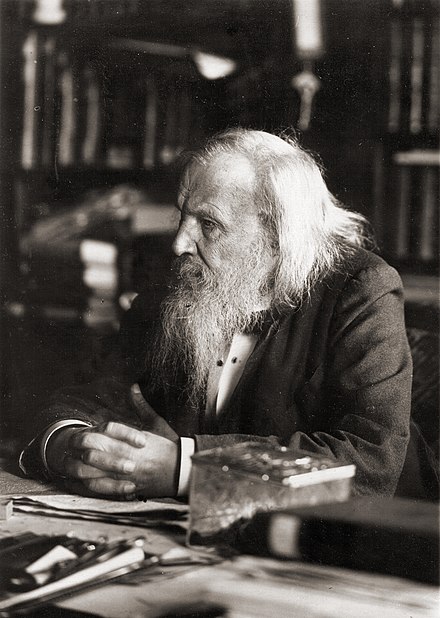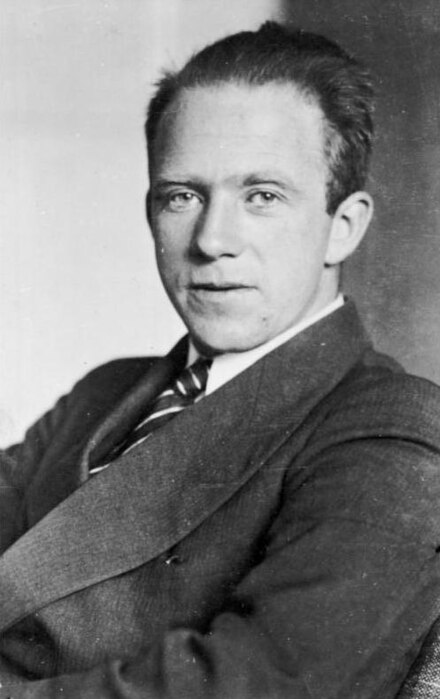Peter Boghossian (PB) is a new atheist goes around the world teaching atheists how to argue Christians out of belief in God. He calls his method “Street Epistemology”. Epistemology is the branch of philosophy which “how you know what you know”. PB claims that if people can be taught the “correct” epistemology then we will automatically reject belief in God.
Despite his epistemology about both science and religion being incredibly skeptical, he makes some pretty big claims about his persuation techniques. He claims that those people who come into contact with them, and appear not to agree, either secretly agree with him or are brain damaged:
This section will unpack the two primary reasons for this appearance of failure: either (1) an interlocutor’s brain is neurologically damaged, or (2) you’re actually succeeding.
The problem is that his epistemology is one which nobody, regardless of our religious belief or lack of it, should agree with.
So what is Peter Boghossian’s epistemology, anyway?
According to an article he published in the popular magazine Scientific American, Peter Boghossian argued in favour of an extreme form instrumentationalism. That’s a big word, what does it mean in plain language?
Most people think when we’re doing science, we’re finding out about the real world. When we image electrons in the lab, those electrons exist in reality. When we measure their properties, we measuring something about reality. That’s known as scientific realism. Science reveals reality.
In contrast instrumentationalists (and PB) are anti-realists. If you’ve ever heard science described as “just a theory” - that pretty much the view PB puts forward. When we are doing science, PB claims, all we are doing is making theories. It is invalid, in PB’s view, no matter how much evidence you have to say something is true, to go from theory to saying anything is ultimately true in reality.
However, most instrumentationalists I know wouldn’t describe their views the way PB does. The normal thing to say is that we know at the point of measurement what is true (ie. that electrons, electric and magnetic fields exist because they are directly measured) but we can’t reliably say what happens between the measurements - rather than denying the scientific realism wholesale.
But PB is more skeptical than most self-described instrumentationalists: he even can’t say electrons, magnetic fields, electric fields, or photons exist.
We test our models to find out if they work; but we can never be sure, even for highly predictive models like quantum electrodynamics, to what degree they correspond to “reality.” To claim they do is metaphysics. If there were an empirical way to determine ultimate reality, it would be physics, not metaphysics; but it seems there isn’t.
So, for example, the fact that we can image electrons directly using scanning tunneling microscopes STM is not an indication electrons actually exist. Going from a scientific theory to reality is “metaphysics”, and “metaphysics” is not to be given any respect at all:
Whatever may be the branches of philosophy that deserve the esteem of academics and the public, metaphysics is not among them. The problem is straightforward. Metaphysics professes to be able to hook itself to reality—to legitimately describe reality—but there’s no way to know if it does.
According to Boghossian’s garbled definitions, the definition of “faith” is claiming to know what you do not know. In this case, he is accusing scientists of claiming to know what we do not know - that our theories correspond to reality. Scientists claiming to know our theories correspond to reality are, according to Boghossian’s definitions, demonstrating faith.
The particles and fields of electrodynamics exist

I am a physicist.
I cannot unsee scanning tunnelling microscope (STM) images of electrons: individual electrons measured in solid state devices down to sub-nanometre scale. But it’s not just the fact that we can actually ‘see’ individual electrons. We have multiple ways to measure them, even individually. One of my favourites is single electron transistors, capable of detecting the presence or absence of individual electrons. Using quantum point contacts, you can see the effects of individual electrons tunelling. Using SQUIDs you can detect the magnetic fields they create. In scattering experiments, and in many different types of spectroscopy you can infer their properties. Using ESR you can manipulate and measure their state, the same with EPR. Even at a school level, you can do the oil drop experiment (and many of us have), build simple electric and electronic devices, use a Van De Graaf generator or experiment on cathode rays. You can see their tracks in a cloud chamber… I could go on and on: the sheer volume of straightforward evidence in favour of electrons existing, from multiple independent sources, is overwhelming.
As Seth Lloyd puts it:
I cannot prove that electrons exist, but I believe fervently in their existence. And if you don’t believe in them, I have a high voltage cattle prod I’m willing to apply as an argument on their behalf. Electrons speak for themselves.
But it’s not just the direct evidence, it’s also that you can make novel predictions with electro-dynamics, which constistently turn out to be right. Electronics, like the computer you are reading on, the mobile phone you carry in your pocket, right the way up to the operation of a light can be accurately designed and predicted using electrodynamics. PB uses all these things, even though he doesn’t believe in the particles and fields which make them work exist in reality.

It’s not just electronics either - Today is Dmitri Mendeleev’s birthday. All of chemistry relies on our description of electrodynamics, as does the periodic table. That electrodynamics corresponds to reality is what chemists and engineers around the world do every day.
It’s also about coherence. Electrons form a part of the standard model, a beautiful description of the physics that we see. By contrast attempts of instrumentalists to even replace the language of scientific realism with that of instrumentationalism totally failed. When words like “electron” were replaced with “the white streak in the bubble chamber” the resulting jibberish quickly descended into utter chaos.
The point is simple: Even on questions where there is overwhelming evidence, unbelievable explanatory power and coherence, Peter Boghossian withholds belief. It’s not just God which Peter Boghossian’s philosophy doesn’t allow belief in, it’s the reality of everything described by science.
Two Brain Damaged People
Boghossian claims that those who reject his philosophy are either brain damaged or secretly agree with him. Many people reject PB’s philosophy of instrumentationalism. To pick just two famous scientists:

Einstein rejected instrumentationalism,
I recall that during one walk Einstein suddenly stopped, turned to me and asked whether I really believed that the moon exists only when I look at it.

Heisenberg rejected instrumentationalism,
The positivists have a simple solution: the world must be divided into that which we can say clearly and the rest, which we had better pass over in silence. But can any one conceive of a more pointless philosophy, seeing that what we can say clearly amounts to next to nothing? If we omitted all that is unclear we would probably be left with completely uninteresting and trivial tautologies.
Neither Einstein nor Heisenberg were brain damaged, and both clearly rejected the epistemology that Boghossian is pushing.
So, considering Boghossian’s claims about those who disagree with his epistemology are outright false, why might he make them? Perhaps it is because accusing people who disagree with you is good propaganda, dehumanizing people who genuinely disagree with you, so they don’t need to be listened to. It shows a great disrespect for his followers, implying that he believes they will be swayed, not by reason or evidence, but by the oldest techiques of propaganda and persuation in the book.
Good Epistemology
A good epistemology seeks to do two equally important things:
- To maximize true beliefs we hold.
- To minimize the number of false beliefs
Neglect either one of these two epistemic duties, and your epistemology is irrevocably broken.
The problem with Peter Boghossian’s (and many skeptical epistemologies) is that they don’t value both of two epistemic duties, but only one. If we only value one, life becomes easy! The easiest way to minimize false beliefs (2) is by simply rejecting virtually every belief, even the most well evidenced things.
But to reject almost every belief, neglects on our duty to hold true beliefs (1).
Read what he says:
We can never know if [a theory] will not someday be replaced with another more powerful model that makes no mention of fields (or particles, for that matter).
It is true is that we can never be sure if our particular model, and the existence of particles and fields of that model are correct. But does not being pedantically certain mean we should withhold belief? No, because we want to fulfil both our epistemic duties, not just one. We want to believe true beliefs. We don’t have to show that no other view is even possible, only that there we have good reasons for believing the one we do. If we do that future models will most likely include the elements of our model, for the simple reason that they really do exist in reality.
It’s always possible, for example, that evolution is not true. It’s possible. It’s just not likely. When you consider the evidence, it becomes ridiculously unlikely- dropping exponentially with each new piece of evidence, and not accepting it becomes a sign of a broken epistemology.
Similarly, when we’re talking about physics - about the existence of electrons, photons, electric and magnetic fields, it’s always possible that science is completely wrong about them and they don’t exist. It’s just not likely. When you consider the evidence, the coherence and the explanatory power of electrons, the probability that we are mistaken becomes exponentially small, and not accepting them is a sign of a broken epistemology.
The reason why PB’s epistemology is broken is clear: It only values one of the two epistemic duties. It values rejecting false beliefs, but not believing the true ones.
Considering both (1) and (2) is tough to do. Of course, it would be easy to neglect one or the other. You wouldn’t have to carefully consider and weigh up the different options ever again. It is tough to try to do both, and definitely not an easy way out, but that’s the only mature thing to do. And that, despite the absurd way that PB characterizes anyone who disagrees with him, is what many of us do.
Conclusion
I’m not arguing here that you should believe in electrons. You should. That is just an example to illustrate PB’s flawed epistemology. I could have chosen many others. I could have taken any of the views he and his group express - about history for example, and made a similar argument. But the reasons why PB’s epistemology is broken would remain the same.
Peter Boghossian’s view is an unbelievably skeptical one. It leads him to reject the existence of particles and fields of electrodynamics. Put simply, his epistemology is far, far too skeptical. It witholds belief in situations it shouldn’t. It rejects the truth even in situations when there is more than enough reason to accept it.
Regardless of your religious beliefs, PB’s epistemology is not reasonable. It demonstrably rejects straightforward evidence based on bad philosophy. It rejects the truth even in situations when there is more than enough reason to accept it. As a way of coming to the truth, PB’s epistemology is broken.
Thanks for reading this waffle. Next waffle I’ll reply to PB fan Lucas, who claims we can never have evidence for God.
Feel free to leave a comment, or tweet to me @sillymuddle.




